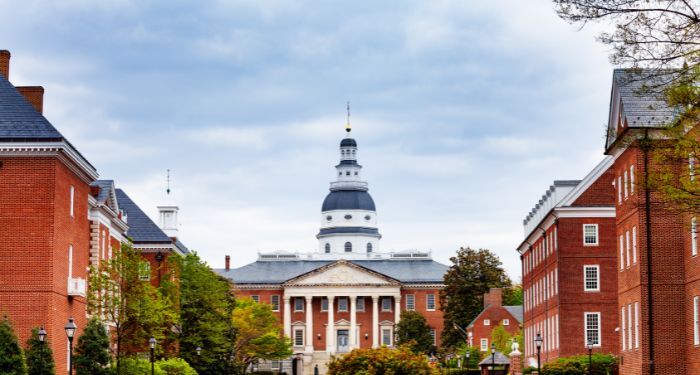Another state has introduced legislation this session seeking to protect the right to read for citizens. Maryland now joins Oregon, Virginia, Washington, New Jersey, Kansas, Colorado, New Mexico, and Massachusetts, in attempting to define the parameters around book banning.
House Bill 0785 (filed concurrently as SB 0738) is Maryland’s “Freedom to Read Act.” It was introduced January 31 by Dana Jones, with sponsors Adrienne A. Jones, Vanessa E. Atterbeary, Eric Ebersole, and Jheanelle K. Wilkins.
The bill includes a series of comprehensive protections for school and public library workers, as well as the materials acquired and housed in these institutions. It sets state standards for funding, similar to the bill passed in Illinois last year, requiring libraries adapt and follow procedures developed by the state library. Books and other library items cannot be removed or prohibited from collections because of “partisan or doctrinal disapproval.”
Also included in the bill is protection of materials in library collections, such that intentional destruction or marring of library materials is misdemeanor offense with a fine of up to $1,000, 10 months in prison, or both.
Both public and school libraries would be subject to the legislation.
From HB 0785:
IT IS THE GOAL OF THE STATE THAT EACH LIBRARY IS OPERATED IN A MANNER THAT RECOGNIZES THE FOLLOWING STANDARDS:
(1) LIBRARY MATERIALS, SERVICES, AND RESOURCES EXIST AND SHOULD BE PROVIDED FOR THE INTEREST, INFORMATION, AND ENLIGHTENMENT OF ALL PERSONS THE LIBRARY SERVES;
(2) A LIBRARY SHOULD NOT EXCLUDE MATERIAL FROM ITS CATALOGUE BECAUSE OF THE ORIGIN, BACKGROUND, OR VIEWS OF A PERSON WHO CREATED THE MATERIAL; AND
(3) A LIBRARY SHOULD NOT PROHIBIT OR REMOVE MATERIAL FROM ITS CATALOGUE BECAUSE OF PARTISAN OR DOCTRINAL DISAPPROVAL.(B) IT IS THE INTENT OF THE GENERAL ASSEMBLY THAT ANY LIBRARY, SCHOOL LIBRARY, RESOURCE CENTER, OR OTHER LIBRARY ARRANGEMENT DEVELOPED BY THE STATE LIBRARY AGENCY THAT RECEIVES FUNDING FROM THE STATE SHALL ADOPT AND FOLLOW A WRITTEN POLICY CONSISTENT WITH THE STATE STANDARDS FOR LIBRARIES ENUMERATED IN SUBSECTION (A) OF THIS SECTION.
Delegate Dana Jones worked on the legislation for over nine months.
“The Freedom to Read Act will protect your choice and safeguard Maryland’s libraries from becoming the next frontier of censorship,” Jones said in a video announcing the legislation. “No matter what library you are in, no matter who you are, one thing is always the same in every library: you are accepted, valued, and you are never alone.”
If passed, the bill would go into effect July 1, 2024.
The American Library Association recorded 10 attempts to restrict access to books in Maryland between January and August 2023 alone, with 66 book titles challenged. This placed the state among the top for censorship attempts in this time frame. PEN America recorded 0 book bans in school districts during the 2022-2023 school year–those numbers do not reflect what has been happening in the state in the 2023-2024 school year. Among the school districts who experienced bans and/or are currently under challenges include Montgomery County Schools, Carroll County Schools, Frederick County Schools, Worchester County Schools, Baltimore County Schools, Wicomico County Schools, and Howard County Schools.
HB 0785 was referred to the Ways and Means Committee and there is a house hearing set for Wednesday, February 21, 2024, at 1 p.m. If you’re a Maryland resident, take ten minutes to write your legislators as soon as possible in support of the bill.

